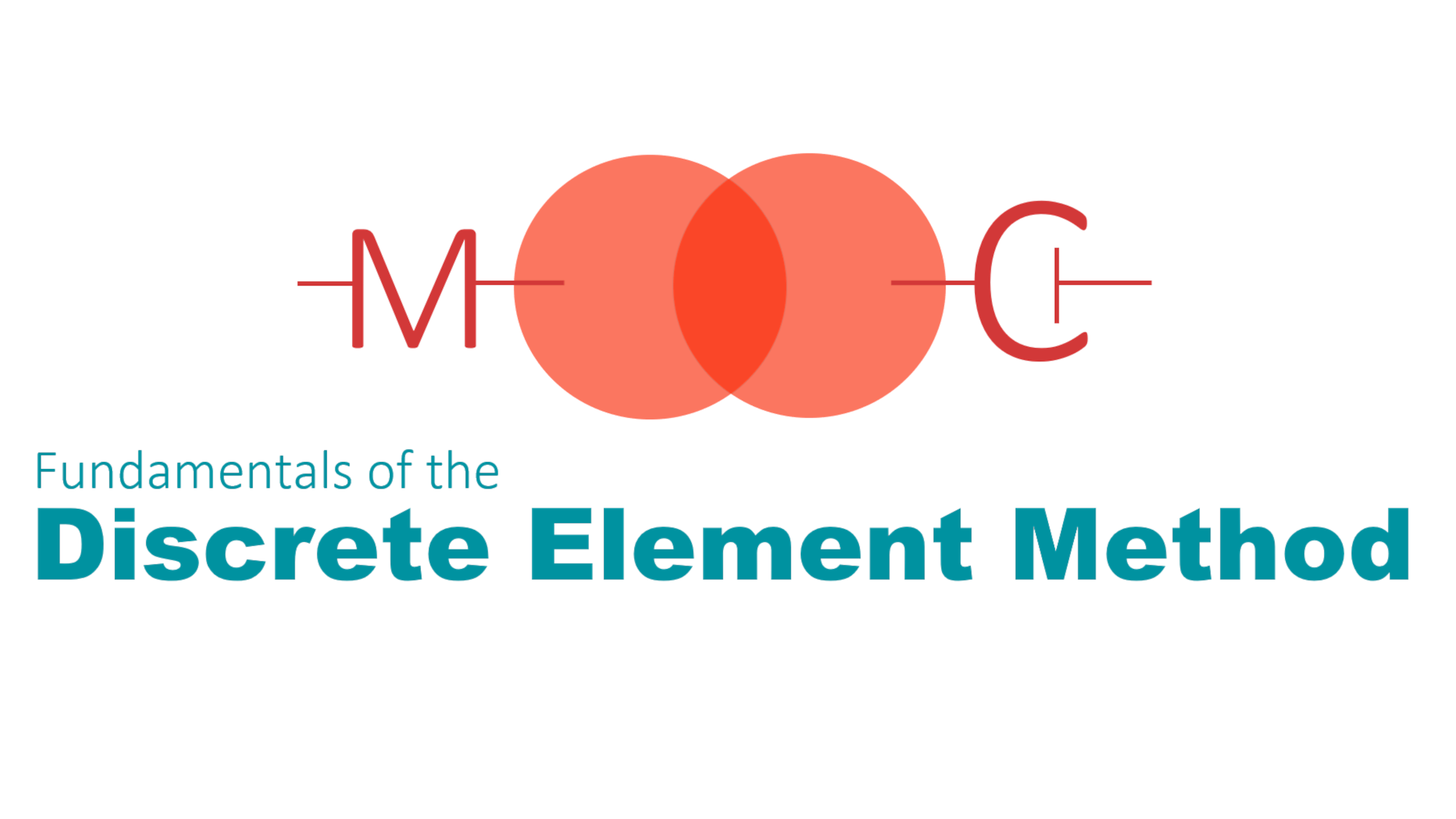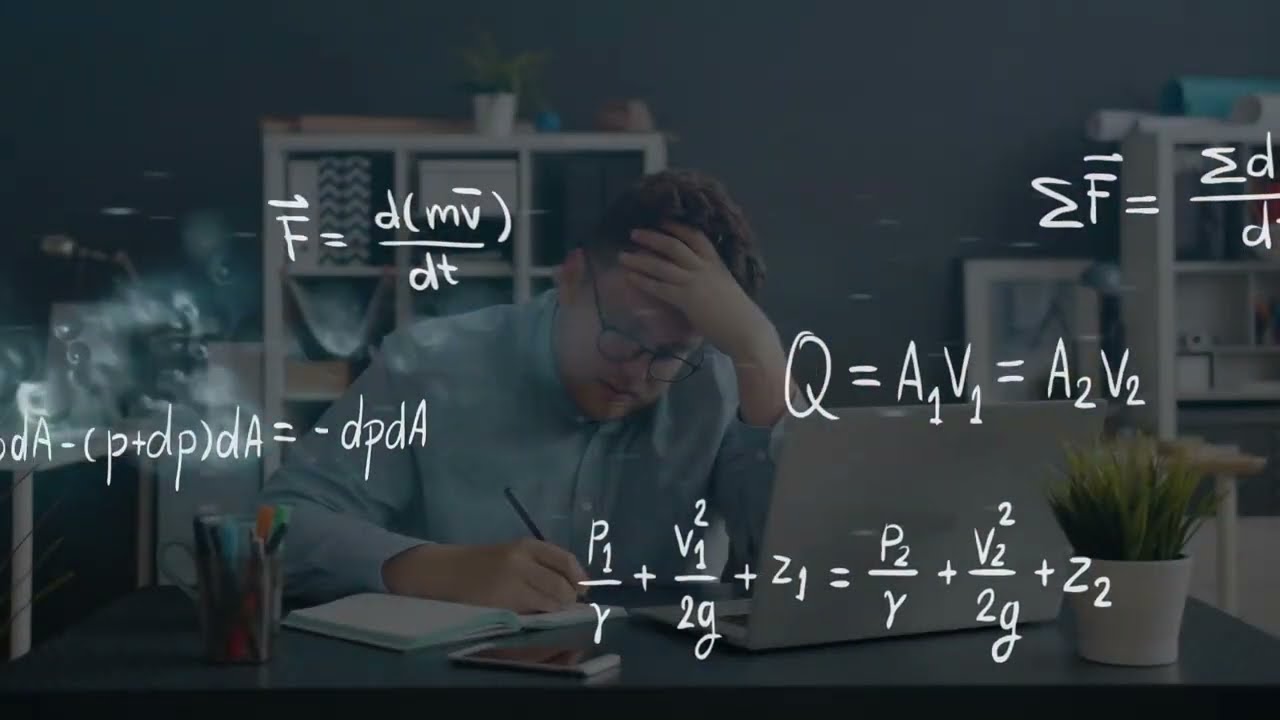Grundlagen der Diskreten Elemente Methode
Kursstart: 7. Oktober 2025
Grundlagen der Diskreten Elemente Methode
Stefan Radl
Wissenschaftliche Einordnung:
Kursstart: 7. Oktober 2025
Grundlagen der Diskreten Elemente Methode
Stefan Radl
-
Umfang: 6 Lektionen
-
Aufwand: 2 Stunden/Woche
-
Teilnehmende aktuell: 95
-
Lizenz: CC BY 4.0
-
Kursstart: 7. Oktober 2025
-
Kursende: 31. August 2026
-
Status aktuell: Laufender Kurs
-
Verfügbare Sprachen:
Trailer
Details zum Kurs
Allgemeine Informationen zum Kurs
Die Diskrete-Elemente-Methode (DEM) ist eine Berechnungsmethode zur Vorhersage der Strömung von Partikeln. Da solche Strömungen in der Natur und in der technischen Praxis häufig anzutreffen sind, hat sich die DEM zu einem leistungsfähigen und wertvollen Instrument in Wissenschaft und industrieller Praxis entwickelt. Aber wie funktioniert die DEM? Welche Informationen werden benötigt, um mit der DEM eine Vorhersage zu treffen? Dieser MOOC bietet einen Grundkurs, der es Ihnen ermöglicht, diese Fragen zu beantworten!
Kursinhalt
In diesem MOOC werden die Grundlagen der DEM behandelt. Das Ziel ist es, die mathematische Expertise und Softwarekenntnisse zu vermitteln, um eine DEM-basierte Simulation korrekt aufzubauen und zu interpretieren. Zu diesem Zweck werden eine Reihe von Berechnungen sowie Simulationsbeispiele besprochen. Der Kurs ist in sieben Einheiten unterteilt, die wie folgt gegliedert sind:
- Einführung (Lektion 1)
- Theoretische Grundlagen (Lektion 2)
- Kraftmodelle - Grundlagen (Lektion 3)
- Praktische Aspekte beim Einsatz der DEM (Lektion 4)
- Kraftmodelle - Fortgeschrittenes (Lektion 5)
- Kalibrierung, Verifizierung und Validierung (Lektion 6)
Lernziele
Nach der Absolvierung dieses MOOCs sollten die Teilnehmer*innen in der Lage sein ...
- ... einen DEM-basierten Simulator zu konfigurieren und auszuführen
- ... die Ergebnisse einer DEM-Simulation mit kugelförmigen Partikeln zu visualisieren und zu interpretieren
Vorkenntnisse
Der MOOC setzt lediglich einige Grundkenntnisse in Mechanik und Mathematik voraus. Konkret sind Kenntnisse folgender Themen notwendig:
- Die Newtonschen Gesetze zur Beschreibung der (translatorischen) Bewegung von Körpern
- Grundlegende Vektoroperationen (Addition, verschiedene Formen der Vektormultiplikation)
Kursablauf
Jede Einheit ist wie folgt aufgebaut:
- Ein Einführungsvideo legt die Grundlagen für jede Einheit.
- Ein oder mehrere Videos mit interaktiven Fragen bilden den Kern jeder Unterrichtseinheit.
- Auf diese Videos folgen Quizfragen zur Selbstevaluierung, um das erworbene Wissen zu überprüfen. Um das MOOC-Zertifikat zu erhalten, müssen mindestens 75% der Punkte in jedem dieser Quiz erreicht werden.
Handouts (PDFs) werden zur Verfügung gestellt, um den Studierenden bei der Anfertigung von Notizen zu helfen und um die wichtigsten Lerninhalte zu unterstreichen.
Für die besonders Motivierten bieten wir zusätzliches Material an: Das sind zum Beispiel komplexere Aufgaben und Berechnungen, oder größere Simulationsbeispiele. Ausgearbeitete Beispiele dieses Zusatzmaterials können zur Anrechnung auf die begleitende Lehrveranstaltung der TU Graz bei Prof. Radl eingereicht werden.
Die Teilnehmer*innen sind aufgefordert, im begleitenden Forum Fragen zu stellen. Diese können dann sowohl von den Kursinstruktor*innen, als auch von den Teilnehmer*innen beantwortet werden.
Zertifikat
Für die aktive Teilnahme am Kurs erfolgt bei Abschluss die Ausstellung einer automatisierten Teilnahmebestätigung, welche Ihren Namen, den Kursnamen und die abgeschlossenen Lektionen beinhaltet. Es wird darauf hingewiesen, dass es sich nur um eine Bestätigung handelt, die aussagt, dass Sie zumindest 75% der gestellten Selbstüberprüfungsfragen richtig beantwortet haben.
Lizenz
Dieses Werk ist lizenziert unter Creative Commons - 4.0 International (CC BY 4.0)
Zusätzliche Inhalte
Sammeln Sie ECTS mit diesem MOOC!
Bei erfolgreicher Teilnahme an diesem MOOC können Sie außerdem Credits im Rahmen des „European Credit Transfer System“ (ETCS) sammeln. Bitte registrieren Sie sich in TUGRAZonline, und wählen Sie den Kurs CHE.874UF ("Design of Multiphase Flow Processes"). Dieser Kurs wird im (auf diesen MOOC folgenden) Sommersemester angeboten!
Kursleitung

Stefan Radl
Stefan hält einen Doktortitel in Verfahrenstechnik von der Technischen Universität Graz (TU Graz). Während seines PhD- und Post-Doc-Studiums entwickelte und verwendete er DEM-basierte Simulatoren sowie die dazugehörigen Post-Processing-Tools. Seit 2018 ist er Associate Professor an der TU Graz, wo er eine venia docendi für das Fach "Partikeltechnologie" innehat. Sein Interesse gilt der Verknüpfung verschiedener Simulationswerkzeuge für Partikel- und Suspensionsströmungen, sowie deren Anwendung auf Herausforderungen in der chemischen Industrie.
Partner:innen
Dieser MOOC basiert auf den Ergebnissen von zwei Projekten, die durch das Forschungs- und Innovationsprogramm "Horizon 2020" der Europäischen Union gefördert wurden: Marie Skłodowska Curie Grant Agreement Nummer 812638 (CALIPER) und 813202 (MATHEGRAM). Zu den Partner*innen, die an diesem MOOC mitgewirkt haben, gehören - neben der TU Graz - die folgenden Institutionen:
- DCS Computing (Österreich)
- INTERNATIONAL CENTRE FOR NUMERICAL METHODS IN ENGINEERING (CIMNE; Spanien)
- Johnson Matthey (Großbritannien)
- University of Navarra (Spanien)
- University of Surrey (Großbritannien)
- Wageningen University (Die Niederlande)



